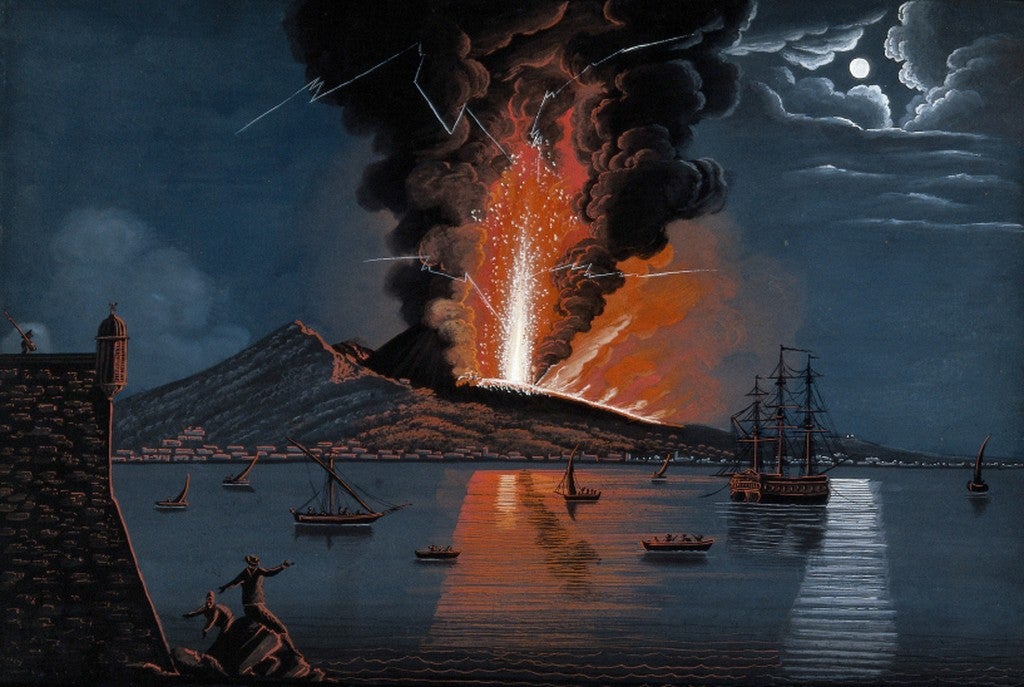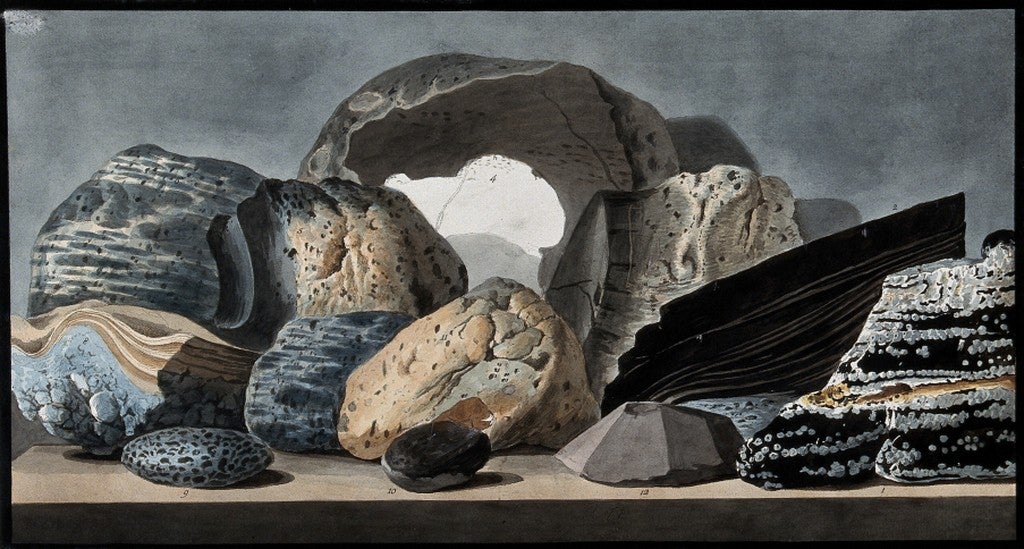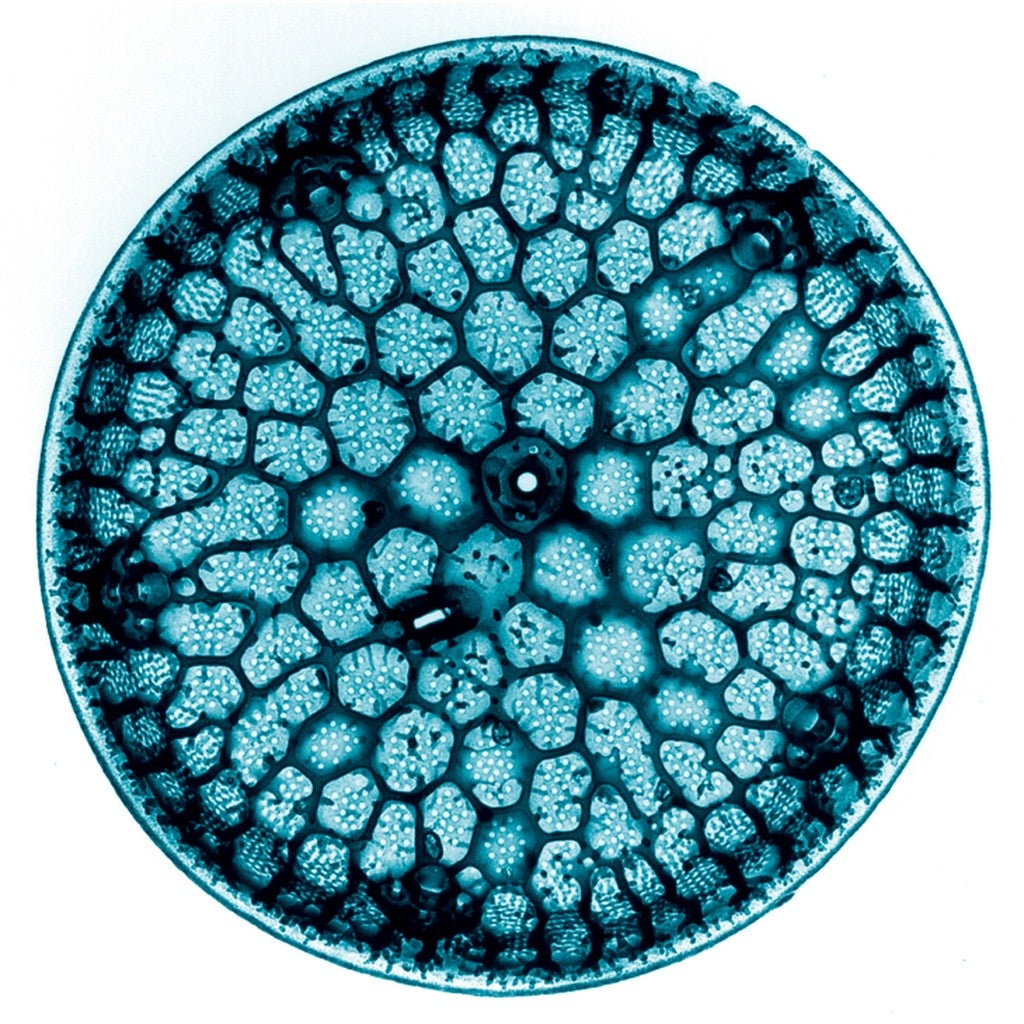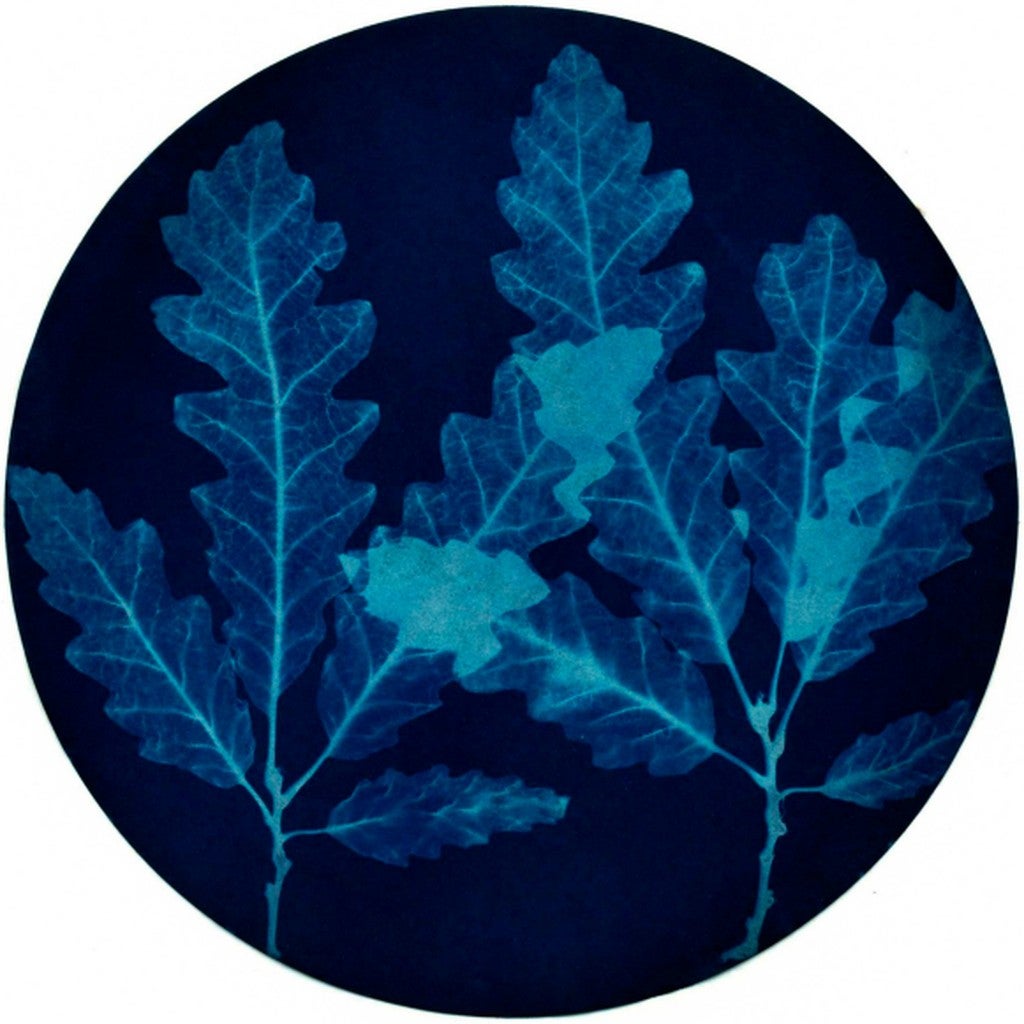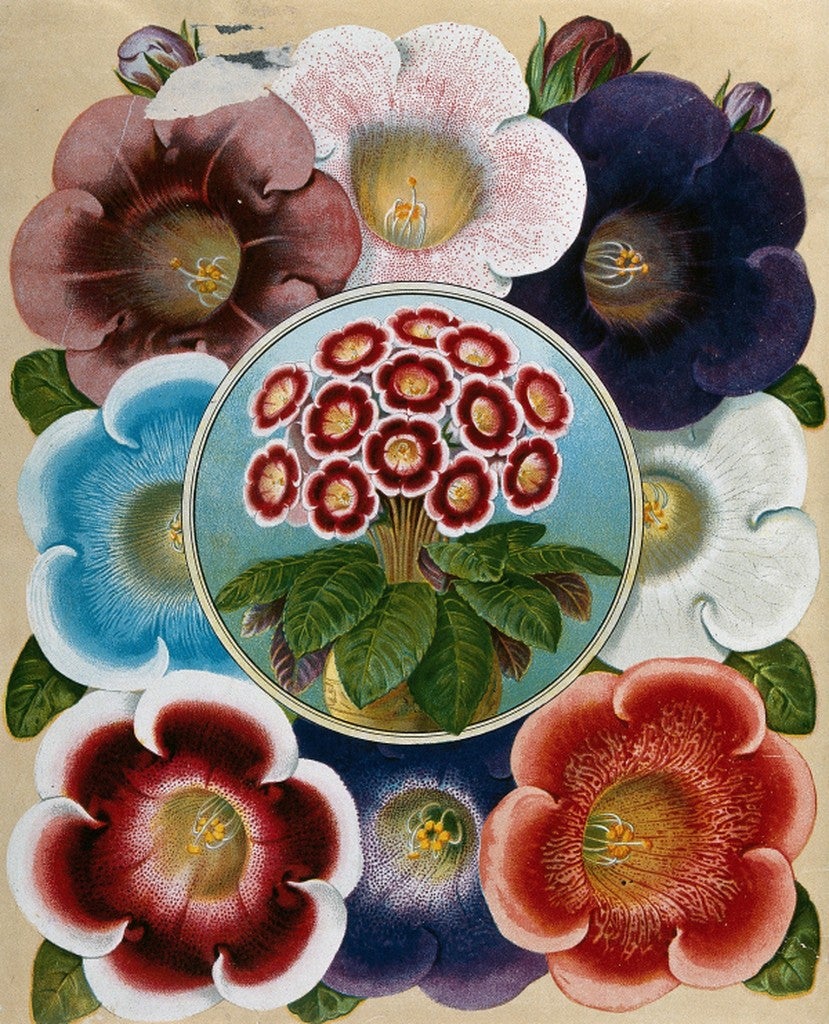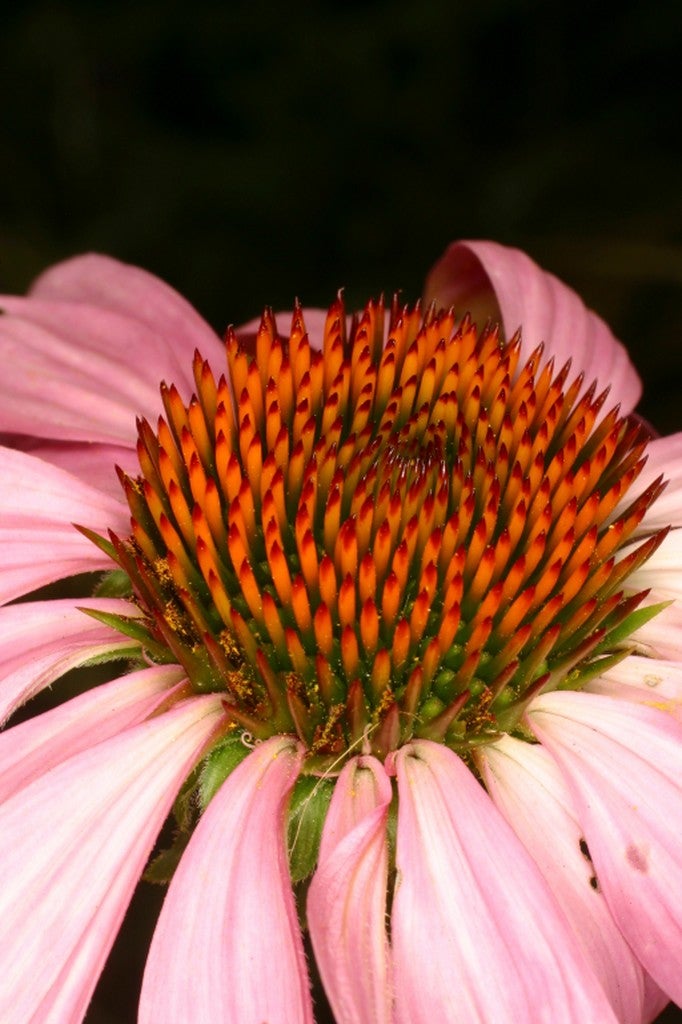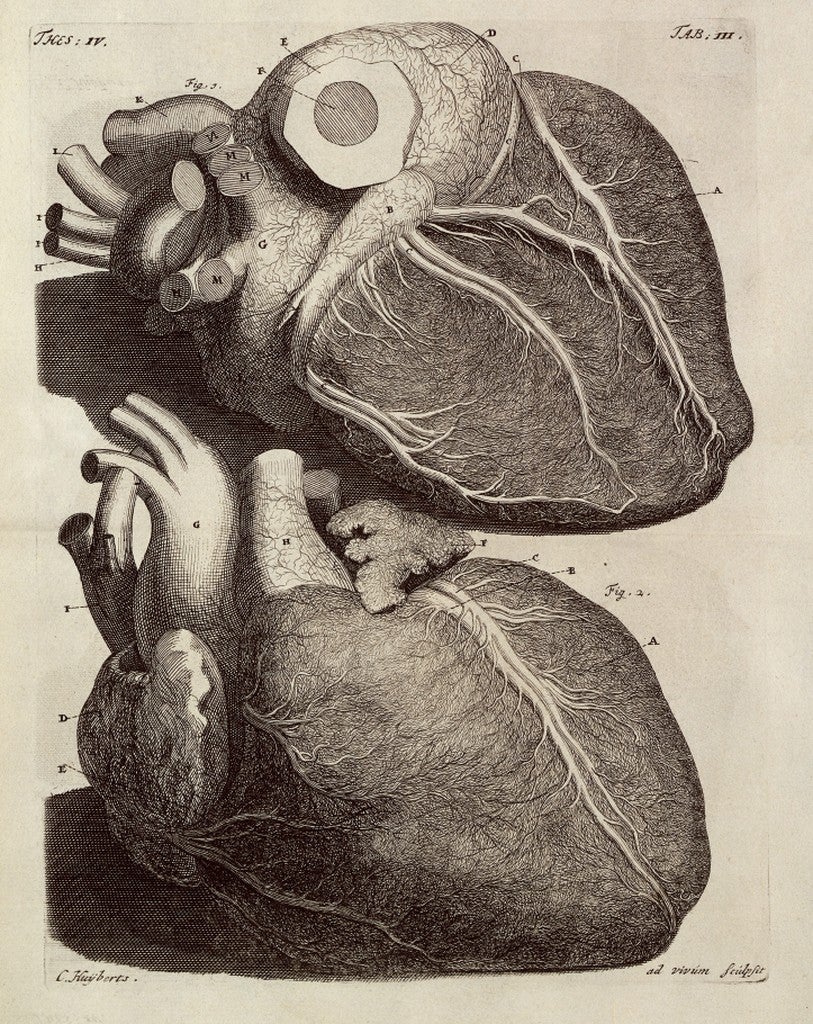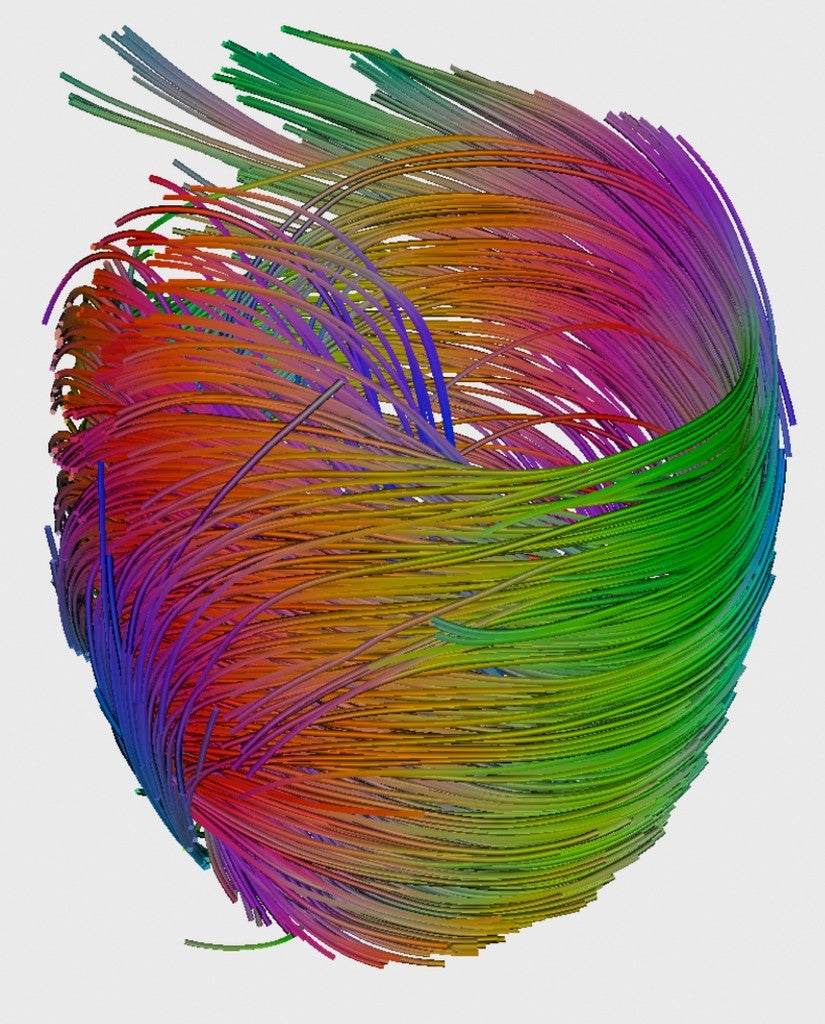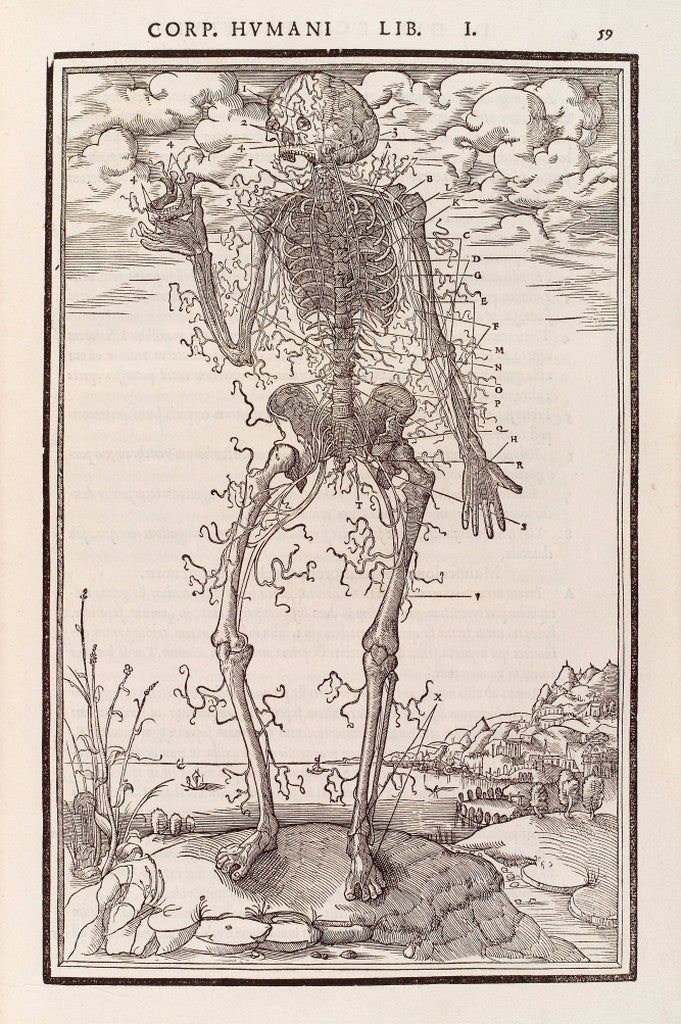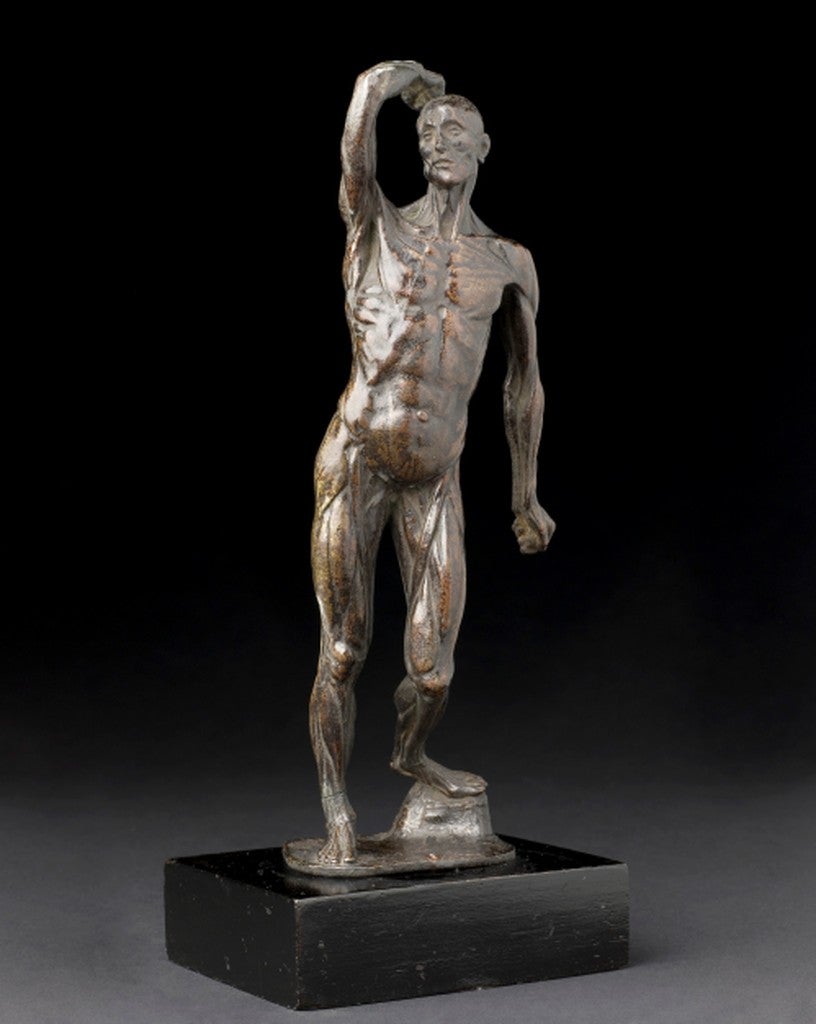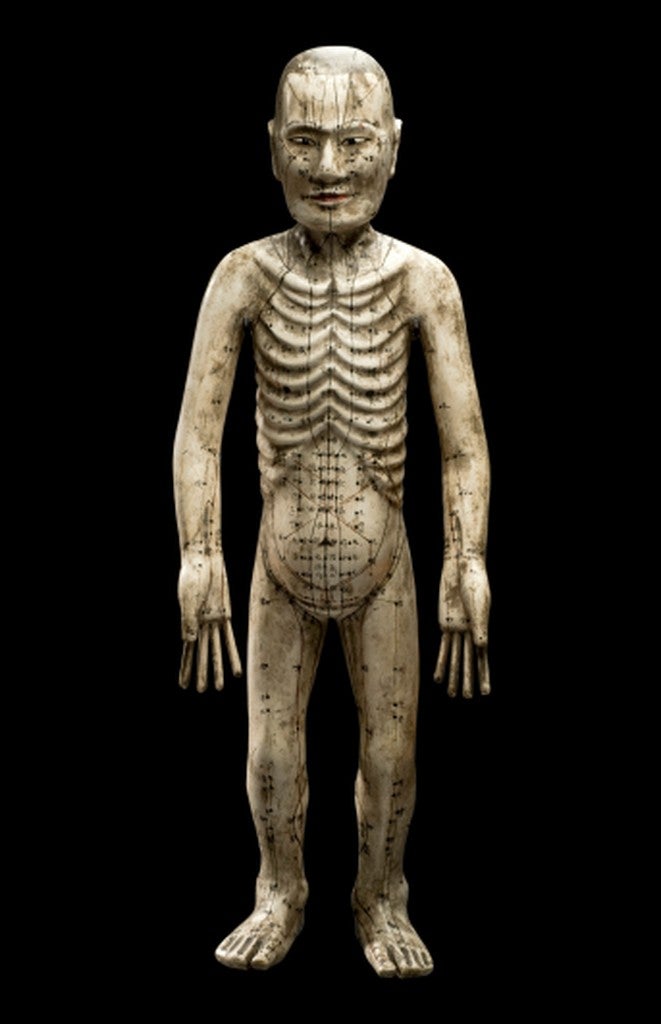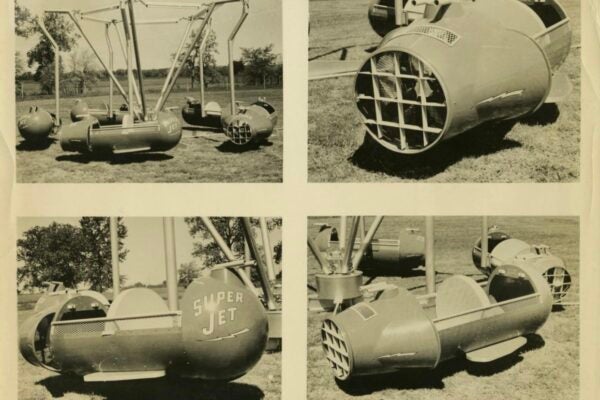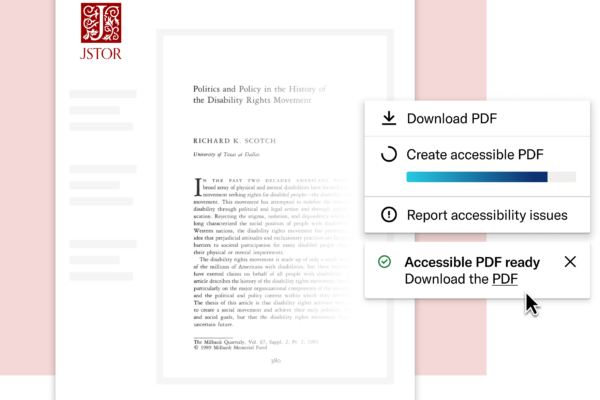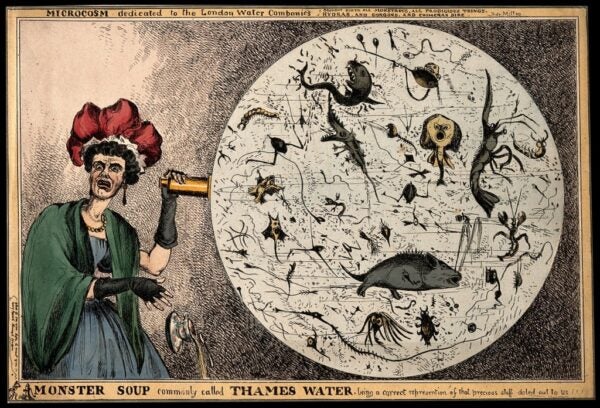
The Open: Wellcome Collection is now available, featuring a selection of more than 100,000 images from the Wellcome Collection that connect science, medicine, technology, life, and art under Creative Commons licenses.
The Wellcome Collection is characterized as “life, death and everything in between.” The Artstor selection fulfills that promise; across matter — human, animal, plant and mineral; across the ages; throughout the world; and encompassing natural phenomena as well as the history of industry and technology, from the molecular to the monumental. An extended perspective on the environment and geological history is provided by images like the etching captioned “Monster Soup/Thames Water,” 1828, and an 18th-century gouache of Mt. Vesuvius erupting. A closer view of volcanic matter may be gleaned from works like Vitrifications,1776, a colored etching by Pietro Fabris and William Hamilton. Evolving imaging techniques heighten magnification and concentrate the view in plant studies such as the centric diatom (algae) rendered by electron microscopy and the cyanotype of a Turkey Oak by contemporary artist Ansel Oommen. The plant world is also recorded in more traditional works — a glorious ad for gloxinia, c. 1890, and a meticulous photograph of echinacea, one of a series by Dr. Henry Oakeley, specialist in medicinal plants.
Wellcome’s emphasis on health is reflected in the abundance of medical imagery (both human and animal). Representations of the heart demonstrate a range from Vesalian observation, as shown in the engraving, 1701-1726, by the Dutch surgeon Frederick Ruysch and the dynamic potential seen in Heartstrings that records cardiac fibers revealed by MRI technology developed by Dr. Patrick Hales. The human figure proliferates in all its complexity in renderings and models from the time of the ancients through today. A sampling provides a print of an enervated skeleton from the anatomical book of Etienne de la Rivière, 1545, a bronze 18th-century figure in the tradition of the European academy, and a Japanese acupuncture model used for teaching the healing art. We invite you to make your own discoveries from this wondrous resource.
Wellcome was established in London by the Wellcome Trust, endowed by pharmacist, entrepreneur, philanthropist, and collector Sir Henry Solomon Wellcome (1853-1936). Today, it funds health research on a broad scale epitomized by its onslaught on disease and epidemics.
– Nancy Minty, Collections editor
